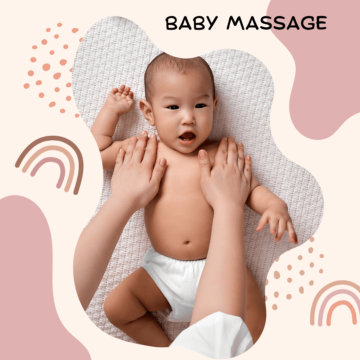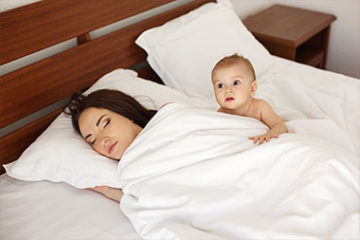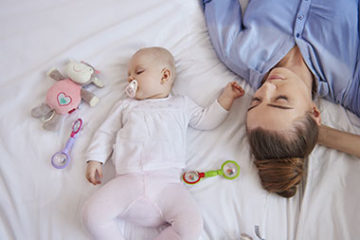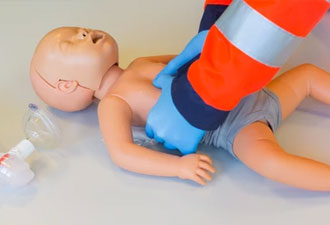Preparing food for babies and the safety precautions to be considered.
When your baby is around 6 months old (We recommended and advocate breastfeeding exclusively until six months of age) and shows some signs like putting toys and objects in their mouth, chewing fists or watching others who are eating with interest and trying to take food off the plate, it’s time to wean your baby.
Note: If you have difficulties in breastfeeding, consider getting some breastfeeding support.
Weaning: The term weaning is derived from the Anglo-Saxon ‘wenian’, which means “to become accustomed to something different.”
By the time they are one year old, most children will be eating three meals per/day of chopped, mashed family food. Help on weaning support is provided by our expert nurses.
When you start weaning, it should be done in a hygienic way and the utensils should be clean and free of germs. Always wash your hands with soap and water before making baby food. If you are sampling, use a fresh spoon and wash it off every time you do.
Use only well-scrubbed and washed produce, clean hands, utensils, cutting boards and countertops.
Remember the following tips for Food Safety:
- Wash properly. Some vegetables or fruits that are grown close to the ground may contain harmful bacteria that can cause food poisoning in babies (like Clostridium botulinum).
- Peel the skin neatly and remove any seeds or pits. When cooking meats and fish, remove all gristle, skin and bones before cooking.
- Cook food until it’s very tender. Eggs, meats and poultry should be well cooked because babies are prone to food poisoning by under cooked food.
- 145°F for fish and whole cuts of meat
- 160°F for ground beef and egg dishes
- 165°F for all types of chicken and poultry
- Steaming and microwaving in just a little water are good methods to retain vitamins and minerals.
- Honey, Salt and Sugar should be avoided in the early stages of weaning. Never add honey to foods or drinks for children under 12 months. Also avoid adding corn syrup or other sweeteners as they only provide extra calories but not nutrients.
- Check that the food is of proper temperature before you give it to your baby.
- Avoid foods which have choking risk (examples are whole grapes, raisins, pieces of hot dog etc.).
- Pureed foods can be thinned, if needed, by adding breast-milk, formula, or water.
- Cow’s milk and milk alternatives should not be used during the first year.
- You may freeze the food for later use, but it is always better you don’t store for extended period. Store in single portions and take only small portions as necessary and discard any leftovers.
- If you’re cooking the same food for the rest of the family, remove the baby’s portion before adding salt and seasonings. A baby’s taste buds can be very sensitive. As the baby grows and becomes more used to table food, feel free to add seasonings (other than salt).
Make sure any cooked food has cooled right down before offering it to your baby.
Preparing homemade food for babies requires extra care that it should be safe and to the nutrients are retained.
What is Baby led weaning:
- Baby-led weaning means giving your baby only finger foods and letting them feed themselves from the start instead of feeding them puréed or mashed food on a spoon.
- Some parents prefer baby-led weaning to spoon feeding, while others do a combination of both.
- There’s no right or wrong way. The most important thing is that your baby eats a wide variety of food and gets all the nutrients they need.
- There’s no more risk of choking when a baby feeds themselves than when they’re fed with a spoon.
Food allergy in babies:
Young children at a higher risk of getting a food allergy include:
- Babies with eczema
- Babies who already have a food allergy.
Research shows that these babies may benefit from the earlier introduction (from 4 months of age) of complementary foods (solids),including foods containing egg and peanut in a form to suit the baby.
If in doubt consult your paediatrician
Contaminated food may contain bacteria like Listeria, E. coli or Salmonella. Always take precaution when you are pregnant and with babies.






